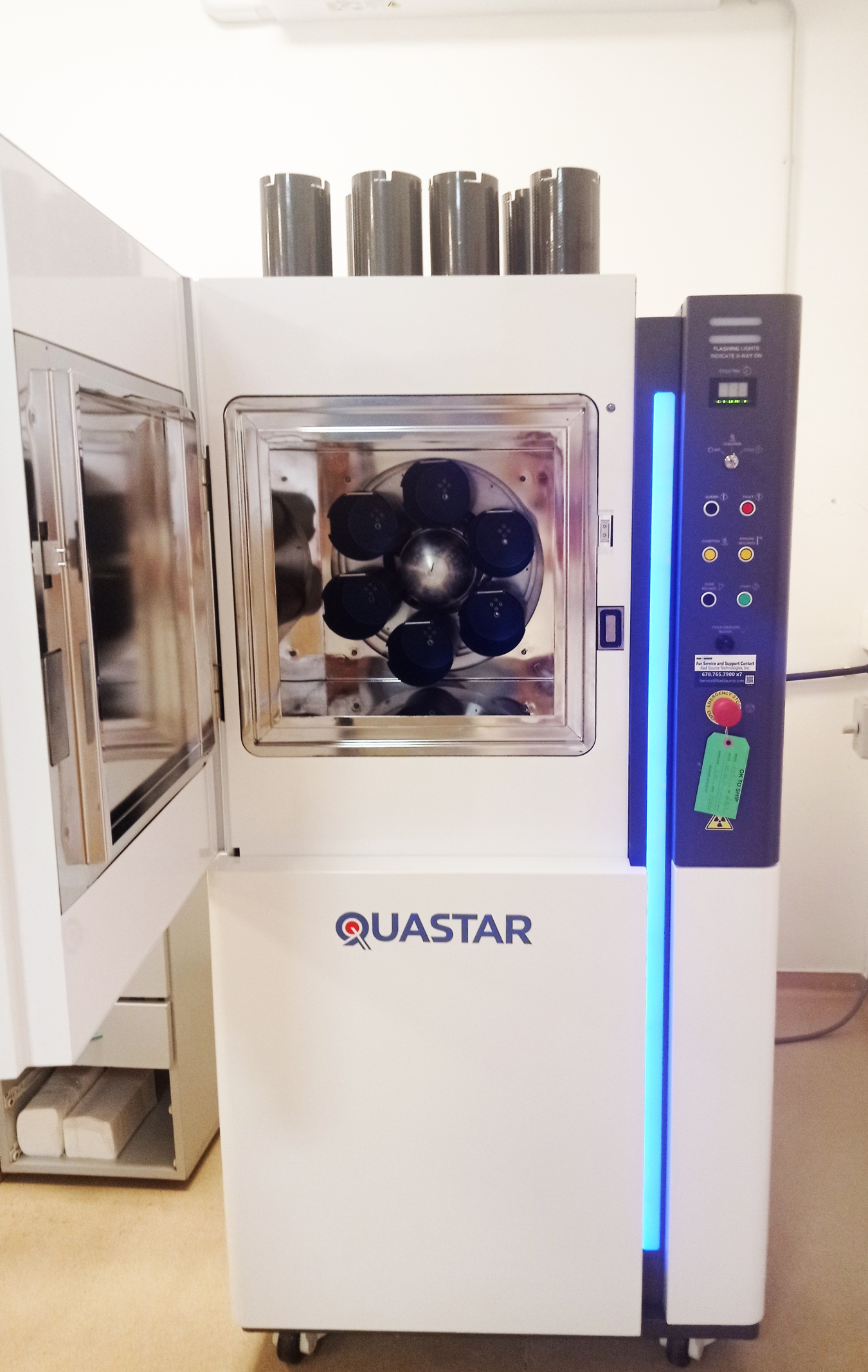The National Nuclear Security Administration’s Office of Radiological Security and the Hungarian National Blood Transfusion Service celebrated the final replacement of Hungary’s high-activity cesium-137 blood irradiators with X-ray technology.
National Nuclear Security Administration
March 6, 2024Joint effort provides model for reducing radiological risk with new technology that improves blood supply

NNSA's Office of Radiological Security (ORS) and the Hungarian National Blood Transfusion Service (HNBTS) celebrated the final replacement of Hungary’s high-activity cesium-137 (Cs-137) blood irradiators with X-ray technology. ORS provided funding for the four new X-ray blood irradiators and facility modifications for operating the new devices. HNBTS paid for removal of the disused cesium source and device and their transport to a secure facility.
“We value our partnership with Hungary and their commitment to eliminating radiological risk by making the transition to X-ray technology,” said Christine Bent, NNSA’s Assistant Deputy Administrator for Global Material Security. “This collaborative initiative serves as an excellent model for other countries looking to replace their cesium irradiators with X-ray technology.”
The partnership began in 2020 when ORS initiated discussions with the Hungarian Atomic Energy Authority (HAEA) about the replacement of its Cs-137-based blood irradiators with X-ray technology. Subsequent discussions led to an agreement to replace all the Cs-137 blood irradiators with X-ray devices.
This collaborative initiative serves as an excellent model for other countries looking to replace their cesium irradiators with X-ray technology.
The HNBTS serves as the national centralized provider of blood component products to the hospital sector through five regional service centers and 19 regional blood supply stations. The replacements were done in phases, with the first devices replaced in Debrecen and Budapest in 2021, and in Pecs in 2022. The final replacement was completed in December at Szeged Regional Blood Center, marking the country’s complete transition to alternative technologies for blood irradiation.With this final cesium irradiator replacement, Hungary has taken significant steps toward reducing the risk of theft and misuse of high-activity radioactive sources by eliminating their use for blood irradiation in the country.
In addition to eliminating radiological risks posed by Cs-137, these X-ray irradiators offer increased capacity to irradiate blood products in a shorter amount of time.
“Our five regional centers process more than 550,000 units of blood annually, which serves Hungary’s 9.7 million population,” said Dr. Klara Baroti-Toth, Quality Assurance-Quality Control Director at HNBTS. “Processing speed and efficacy is critical given the unending demand for transfusable blood. The throughput of our older cesium blood irradiators continued to decrease every year due to source decay. The cesium devices also required additional security and maintenance. The faster X-ray technology offered a permanent risk reduction and eliminated security costs. Partnering with ORS to make the transition from cesium to X-ray enabled us to do so in a timely manner with no disruption in service to our hospitals.”
ORS’s work in Hungary and across the globe directly supports the U.S. National Security Strategy, which calls for the United States to “lead the world in coordinated efforts to lock down nuclear and radiological materials and prevent terrorist acquisition.”
“We are so pleased that Hungary has already benefited from making the switch to X-ray and look forward to continuing our partnership with them as HNBTS presents at the upcoming Iberian regional X-ray transition workshop, which ORS is co-sponsoring,” said Kristin Hirsch, Director of ORS. “Hungary’s commitment to alternative technology and willingness to share their experience will help nearby countries benefit from X-ray technology and achieve permanent risk reduction as well.”

